SUMMARY
This is AI generated summarization, which may have errors. For context, always refer to the full article.
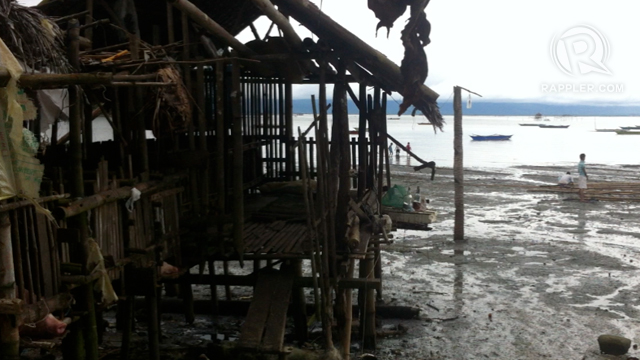
(Last of two parts)
CATBALOGAN CITY, Philippines – Samar’s ruling Tan family didn’t rise to power overnight. Neither did it build an immense war chest in a day.
It took years of schemes of pocketing public funds to get to where they are, sources in the provincial government said. Their means are sometimes discreet, but often blatant, and these have not escaped the eyes of state auditors.
(Read Part 1: Samar’s long wait for salvation)
Nowadays, word about any alleged anomalous contract forged by the provincial government no longer surprises employees at the capitol. People are “used to it,” one employee lamented.
The Tans have repeatedly denied corruption allegations thrown at them. They are politically motivated, they said.
This is not what government audit reports on Samar say, however.
The audits checked by Rappler cite a total of at least P674 million of provincial funds that were misused, diverted, missing or released improperly under the Tans’ rule since 2001.
The Commission on Audit (COA) has reported irregularities in procurements, and bidding and implementation of projects in Samar, committed time and again, over the years.
Misused relief funds
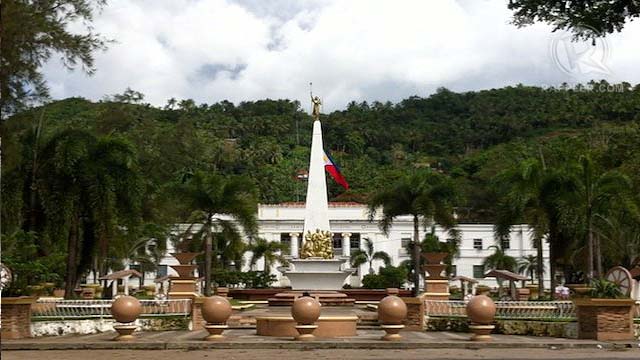
When the ruling family’s matriarch, 2nd district Rep Milagrosa “Mila” Tan, assumed office as governor in 2001, she reportedly didn’t waste time.
“Mabilis. Marami siyang procurements agad. Gusto niya madalian. Malaki kasi gastos niya sa eleksyon, kailangan makabawi siya,” narrated Aurelio “Jun” Bardaje Jr, the capitol’s general services officer at the time. (It was fast. Immediately, she had procurements. She spent a huge sum in the elections; she needed to recover the money.)
After taking her oath, Mila took over the funds of the provincial social welfare and development office, a 2001 Newsbreak report quoting the office’s head said.
The P1.4 million wasn’t spent for relief assistance — its purpose — but was used by Mila as her personal kitty, spending it indiscriminately, the same report said.
COA’s audit that year showed the provincial government failed to explain how the money was disbursed to indigent families as it reported.
Mila also allegedly targeted the province’s calamity funds.
In 2004, the Office of the Ombudsman sued her for 8 counts of graft before the Sandiganbayan, accusing her of conspiring with 4 other provincial officers for the misuse of P16 million of the province’s calamity funds.
The case was based on a complaint filed by Noel Labendia, then parish priest of the Diocese of Calbayog and founding leader of the anti-corruption group Isog Han Samar Movement (The Courage of Samar Movement).
The complaint said that Mila and the officers approved the purchase of emergency supplies, such as medicines, rice, and electric fans for victims of Typhoon Kidang, which struck Samar on Dec 4-5, 2001.
The purchases were made without a declaration of state of calamity from the provincial board. There were no public bids and the costs of the supplies were bloated, according to the complaint.
COA found that some of the purchases were based on requests of municipalities way before the typhoon came. Rice and goods were bought from a grocery store over a hundred kilometers from Samar, 7 days after the typhoon had left. A resolution issued by the provincial board to authorize the release also showed the funds were for another typhoon.
Overpriced medicines
Among anomalous procurements, medicines and medical supplies are probably the provincial government’s “favorite,” said Bardaje, who is now administrative officer of the Samar Provincial Hospital.
In these procurements, Bardaje said, the winning supplier is always “pre-determined.” Contracts are overpriced, too. “Kung titingnan mo sobra, sobra ang patong d’yan na presyo… Doble or triple ang presyo ng mga gamot.” (Medicine prices are double or triple the actual.)
The Tans get an automatic “cut” or commission of up to 50% from suppliers, who are based in other regions. “Nung naupo si Governor Tan, wala nang nagpa-participate na local suppliers. Lahat galing sa labas tulad ng Bicol, Bulacan.” (Since she took over, no local suppliers have been participating. All bidders come from outside, like Bicol, Bulacan).
“’Yong procedures noon, ganoon din nangyayari ngayon.” (The procedures remain the same.)
Mila’s second daughter and incumbent Samar governor, Sharee Ann “Sheeann” Tan, dismissed Bardaje’s claims.
“Number one, tingnan ’yong credibility. Si Bardaje naging supporter ng mom ko. Naging GSO siya ng kapitolyo. Ang dami niyang demands na hindi na rin kayang ibigay ng mom ko. Nahawakan din siya ng kalaban namin at ginamit na rin siya,” Sheeann said.
(First, look at the credibility. Bardaje used to be my mom’s supporter, he was former GSO of the capitol. He had demands my mom couldn’t grant anymore. He is being used by our political rivals.)
But Bardaje’s statements are backed by COA reports. From 2001 until 2007, COA raised questions on the legality of at least P130 million medicine and medical supply acquisitions made by the province.
Government auditors also could not determine where at least P32 million worth of drugs and medicines went due to lack of records.
Neglected hospitals
Despite millions of pesos spent on medicine and medical supply contracts, health services did not improve under the Tans. In fact, they worsened, said Bardaje.
In terms of drug purchases, he said requests of doctors are not being followed. Some of the drugs and medical supplies, whatever small deliveries that get to the province, cannot be used because they are substandard.
Around P17 million was allotted for Samar hospitals annually for the past years, but no major purchases for upgrade of equipment and facilities were made, he said.
The Samar Provincial Hospital got funding from the Department of Health regional office for renovation and additional beds, he noted. District hospitals are not as lucky.
In Calbayog City, for instance, the district hospital is dilapidated. Roofs leak when it rains, beds in the wards are rusty, and lavatories stink. Shelves in the pharmacy are almost empty. When there is no power, the hospital gets dark and almost non-operational with no fuel to run generators.
Asked how they are able to treat patients with serious conditions taken to the emergency room, a nurse replied, “Mamamatay na lang talaga sila.” (They will really just die.)
Laboratory tests for patients taken to the hospital are also done in private clinics because they don’t have the facilities to conduct the tests, another medical personnel said.
Ironically, Sheeann said her family’s biggest contribution to the province was actually in health.
She said they were able to enroll some 60,000 poor families in state-run medical insurance company, Philhealth.
“Halos wala talaga dating Philhealth. Ngayon nakabigay na kami sa mga tao.” (People here didn’t have Philhealth insurance. Now we’re are able to provide for them.)
COA’s audit report in 2009 found that P11 million in taxes and government contributions, including Philhealth premiums, were not remitted by the provincial government.
But as far as her term is concerned, Sheeann said, “advance ako magbigay.” (I pay in advance.)
Ghost, double-funded infra
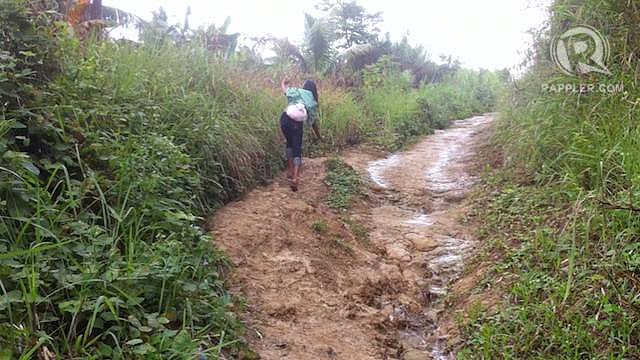
Insiders said corruption extends to infrastructure projects, another source of kickbacks for the Tans.
They said many road projects bid out by the provincial government in the past were ghost or double-funded. In the instances that the projects existed, the costs were bloated, and the materials used were substandard. Biddings were also rigged, with the Tans’ dummy contractors winning.
One project, the City Homes-Ibol-Pangdan road, which links the coastal village of Pangdan to the national highway in Catbalogan, remains uncompleted.
Some P19.2 million was allotted for the opening of the road, along with another road in Daram town, in 2008.
Another P10.4 million was allotted for the surfacing of the road and two other roads clustered with it.
The road was never surfaced, but an accomplishment report was filed with the Provincial Engineering Office.
It was the same story for another project, the Obayan-Calampong road in Pinabacdao, for which a P3-million surfacing accomplishment report was filed.
Meanwhile, waiting sheds with little or no use at all mushroomed all over the province. Materials for these sheds were overpriced and substandard, resulting in shoddy infrastructure, one source said.
For example, a shed constructed in Barangay Cantongtong in Paranas town in 2010 was priced P753,322.26 (materials and labor) on paper, but the actual cost was only P481,244.50, based on the estimate of the source, who’s familiar with the project.
At the barangay level, “gimmicks” mainly involved vouchers.
A former barangay captain told Rappler that the Tans made them sign blank vouchers for cement and other construction supplies.
“Pinapirma lang kami wala naman dumating. Minsan pinapirma kami ng worth P200,000 na project, binigyan lang kami P5,000 lang,” recalled 49-year-old Milagros Gatil of Barangay Buenavista in Daram town. (We were asked to sign, but nothing was delivered. One time, we were asked to sign that we received P200,000 for a project, but we were given only P5,000.)
In Catbalogan, city government sources revealed that several projects funded by Mila Tan’s Priority Development Assistance Fund in the provincial capital did not exist.
“Minsan pipicturan nila yung projects ng city government tapos ire-report nila sa kanila,” said one source. (They take pictures of city government projects and report them as their own.)
Asked to comment on the allegations, Sheeann said, “Definitely wala kaming ghost projects. Wala ring unfinished. Kung unfinished man, ‘di pa naco-collect ‘yon. Walang lumalabas na pondo ro’n,” (Definitely we don’t have ghost or unfinished projects. If ever a project remains unfinished, no funds have been released for that.)
“Kung bloated, bid ’yan eh.” (How can you say it’s bloated, that’s bid out?)
She also denied they have dummies. “Open ang BAC sa kanila. Sa amin, ministerial lang naman.” (The Bids and Awards Committee is open to them. We’re only ministerial.)
She also denied they made people sign blank vouchers. “Never. When [barangay captains] give us appoved resolutions, we schedule the release of funds. We don’t always have a vehicle immediately available, so we schedule the delivery. We maximize the rounds, deliver to all of them at the same time. I don’t want to ask them to sign when we have not delivered any materials,” the young governor said in a mix of English and Filipino.
COA reports from 2004-2008 however cited several instances when the provincial government paid for construction materials even if these were not delivered.
Some P200 million worth of disbursed vouchers for infrastructure materials and other supplies were unaccounted for. Some P120 million worth of projects were delayed, deficient, and lacked supporting documents.
As of 2011, COA issued notices of suspension, disallowances, and charges for P114 million worth of projects and procurements undertaken by the provincial government.
Where’s ‘tuwid na daan’?
Civil society groups are calling on the Aquino government to do something about widespread corruption in the province.
“Hindi maganda ang ginagawa dito sa finances. Very bad governance,” said Fr Cesar Aculan, the current president of Isog Han Samar Movement, and director of Social Action Center of the Diocese of Calbayog.
“We are one of the poorest provinces, at lalong naghihirap (we’re getting poorer),” he added.
Aculan said they are banking on President Benigno Aquino III’s “Tuwid na Daan” (straight path) slogan.
“Gusto naming madinig din kami, masampolan din ang tiwaling governors dito, hindi lang sa big cities sa ibang regions,” (We want to be heard too. We want him to punish corrupt governors here and make an example of them.)
“Sabi nila, ‘Kung walang corrupt, walang mahirap.’ Sobrang mahirap ang Samar,” the priest said. (They said if there are no corrupt officials, there are no poor people. Samar is extremely poor.) – Rappler.com
Add a comment
How does this make you feel?
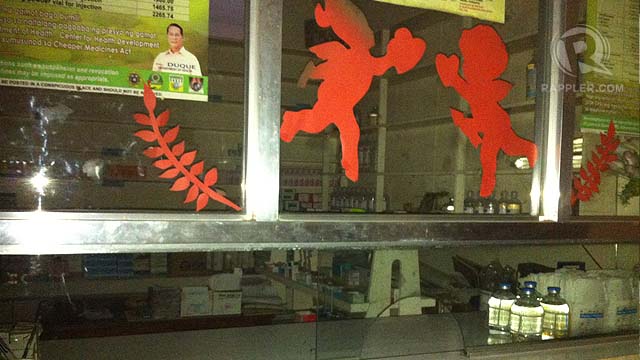
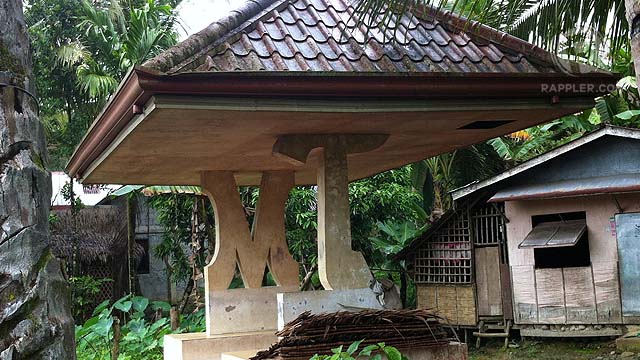
There are no comments yet. Add your comment to start the conversation.